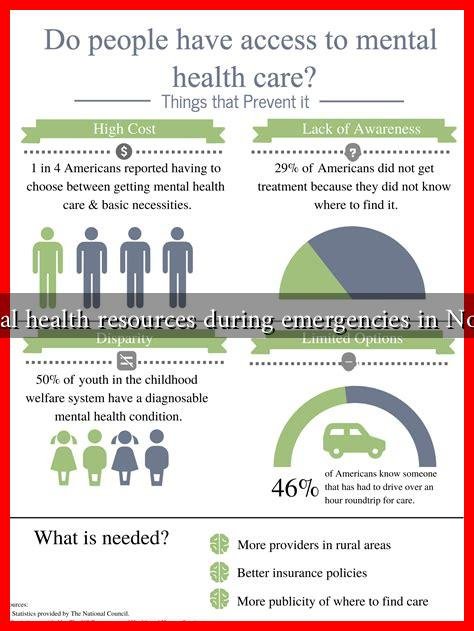-
Table of Contents
- How to Access Mental Health Resources During Emergencies in Northeast Ohio Today
- The Importance of Mental Health Resources in Emergencies
- Available Mental Health Resources in Northeast Ohio
- 1. Crisis Hotlines
- 2. Local Mental Health Agencies
- 3. Telehealth Services
- How to Access These Resources
- Case Studies and Statistics
- Conclusion
How to Access Mental Health Resources During Emergencies in Northeast Ohio Today
In times of crisis, mental health resources become crucial for individuals and communities. Northeast Ohio, with its diverse population and array of services, offers various options for accessing mental health support during emergencies.
. This article will guide you through the available resources, how to access them, and the importance of mental health care in times of distress.
The Importance of Mental Health Resources in Emergencies
Emergencies, whether they are natural disasters, public health crises, or personal tragedies, can significantly impact mental health. According to the National Institute of Mental Health, approximately 1 in 5 adults in the U.S. experience mental illness each year. In times of crisis, this number can increase as stress, anxiety, and trauma take their toll.
Accessing mental health resources during emergencies is vital for:
- Providing immediate support to those in distress.
- Preventing long-term psychological effects.
- Facilitating recovery and resilience in affected communities.
Available Mental Health Resources in Northeast Ohio
Northeast Ohio boasts a variety of mental health resources that can be accessed during emergencies. Here are some key options:
1. Crisis Hotlines
Crisis hotlines are often the first point of contact for individuals seeking immediate help. In Northeast Ohio, several hotlines are available:
- Cuyahoga County Crisis Hotline: 216-623-6888 – Available 24/7 for individuals in crisis.
- National Suicide Prevention Lifeline: 1-800-273-TALK (1-800-273-8255) – Offers 24/7 support for those in emotional distress.
- Ohio Crisis Text Line: Text “4HOPE” to 741741 – Provides free, 24/7 support via text messaging.
2. Local Mental Health Agencies
Several local agencies provide comprehensive mental health services, including counseling, therapy, and support groups:
- FrontLine Service: Offers crisis intervention and mental health services throughout Cuyahoga County.
- Summit County ADM Board: Provides resources and support for mental health and addiction services.
- Beacon Health: Offers a range of mental health services, including telehealth options.
3. Telehealth Services
In the wake of the COVID-19 pandemic, telehealth services have become increasingly popular. Many mental health professionals in Northeast Ohio now offer virtual appointments, making it easier to access care from the comfort of your home. Some platforms to consider include:
- Talkspace: An online therapy platform that connects users with licensed therapists.
- BetterHelp: Offers online counseling with licensed professionals via chat, video, or phone.
How to Access These Resources
Accessing mental health resources during emergencies can be straightforward if you know where to look. Here are some steps to follow:
- Identify Your Needs: Determine whether you need immediate crisis support or ongoing therapy.
- Reach Out: Use the hotlines or websites of local agencies to get in touch with a professional.
- Utilize Telehealth: If in-person visits are not feasible, consider telehealth options for therapy.
- Follow Up: After your initial contact, ensure you follow up with any recommended services or appointments.
Case Studies and Statistics
Recent studies indicate that mental health issues have surged during emergencies. For instance, a report from the American Psychological Association found that 76% of Americans reported significant stress due to the COVID-19 pandemic. In Northeast Ohio, local agencies have noted a 30% increase in calls to crisis hotlines since the onset of the pandemic.
One case study from Cuyahoga County highlighted the effectiveness of community outreach programs during the pandemic. By providing virtual support groups and teletherapy, the county was able to reach over 1,000 individuals in need of mental health support.
Conclusion
Accessing mental health resources during emergencies in Northeast Ohio is essential for maintaining emotional well-being. With a variety of hotlines, local agencies, and telehealth options available, individuals can find the support they need. Remember, reaching out for help is a sign of strength, and there are numerous resources ready to assist you in times of crisis.
For more information on mental health resources in Ohio, visit the Ohio Department of Mental Health and Addiction Services.





